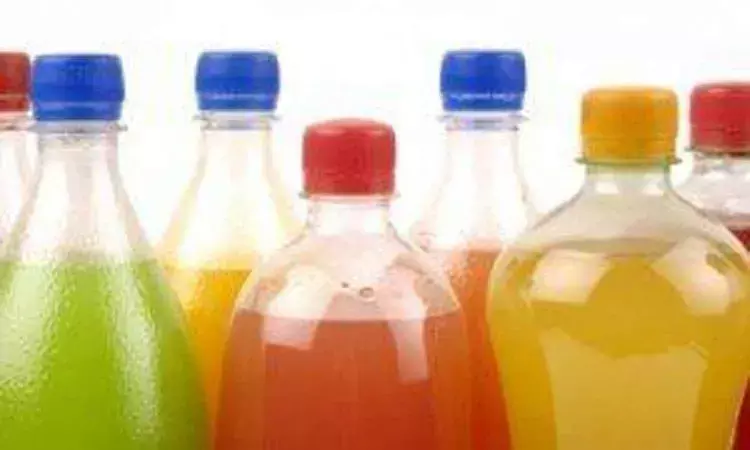- Home
- Medical news & Guidelines
- Anesthesiology
- Cardiology and CTVS
- Critical Care
- Dentistry
- Dermatology
- Diabetes and Endocrinology
- ENT
- Gastroenterology
- Medicine
- Nephrology
- Neurology
- Obstretics-Gynaecology
- Oncology
- Ophthalmology
- Orthopaedics
- Pediatrics-Neonatology
- Psychiatry
- Pulmonology
- Radiology
- Surgery
- Urology
- Laboratory Medicine
- Diet
- Nursing
- Paramedical
- Physiotherapy
- Health news
- Fact Check
- Bone Health Fact Check
- Brain Health Fact Check
- Cancer Related Fact Check
- Child Care Fact Check
- Dental and oral health fact check
- Diabetes and metabolic health fact check
- Diet and Nutrition Fact Check
- Eye and ENT Care Fact Check
- Fitness fact check
- Gut health fact check
- Heart health fact check
- Kidney health fact check
- Medical education fact check
- Men's health fact check
- Respiratory fact check
- Skin and hair care fact check
- Vaccine and Immunization fact check
- Women's health fact check
- AYUSH
- State News
- Andaman and Nicobar Islands
- Andhra Pradesh
- Arunachal Pradesh
- Assam
- Bihar
- Chandigarh
- Chattisgarh
- Dadra and Nagar Haveli
- Daman and Diu
- Delhi
- Goa
- Gujarat
- Haryana
- Himachal Pradesh
- Jammu & Kashmir
- Jharkhand
- Karnataka
- Kerala
- Ladakh
- Lakshadweep
- Madhya Pradesh
- Maharashtra
- Manipur
- Meghalaya
- Mizoram
- Nagaland
- Odisha
- Puducherry
- Punjab
- Rajasthan
- Sikkim
- Tamil Nadu
- Telangana
- Tripura
- Uttar Pradesh
- Uttrakhand
- West Bengal
- Medical Education
- Industry
Consumption of sugar-sweetened beverages heightens death risk: Circulation

USA: Consumption of sugar-sweetened beverages (SSBs) is associated with higher all-cause mortality, largely through increased CVD mortality, a recent study in the journal Circulation has found. Further, artificially sweetened beverages (ASBs) were found to be positively associated with mortality only among women with high consumption levels.
Throwing light on findings from the study Alice H. Lichtenstein, Gershoff Professor of Nutrition Science and Policy has given a presentation at the virtual Heart in Diabetes Conference held from Aug. 21-24, 2020 (virtual). According to the speaker, greater efforts are needed to decrease the consumption of SSBs in the US despite warnings about health risks associated with their consumption.
SSBs are the single largest source of added sugar in the US diet. It includes both carbonated and non-carbonated soft drinks, sports drinks, and fruit drinks that contain added caloric sweeteners such as fruit juice concentrates, sucrose, and high fructose corn syrup. Previous studies have shown SSBs intake to be associated with multiple adverse effects on health including weight gain, higher risk of type 2 diabetes, stroke, and coronary heart disease. However, only a few studies have examined the association between SSB intake and mortality.
Vasanti S. Malik, Chan School of Public Health, Boston, MA, and colleagues examined associations between SSBs and ASBs consumption with risk of total and cause-specific mortality. The study recruited 37 716 men from the Health Professional's Follow-up study (from 1986 to 2014) and 80 647 women from the Nurses' Health study (from 1980 to 2014) who were free from chronic diseases at baseline.
Key findings of the study include:
- The researchers documented 36 436 deaths (7896 cardiovascular disease [CVD] and 12 380 cancer deaths) during 3 415 564 person-years of follow-up.
- After adjusting for major diet and lifestyle factors, consumption of SSBs was associated with a higher risk of total mortality; pooled hazard ratios (95% confidence intervals) across categories (<1/mo, 1–4/mo, 2–6/week, 1-<2/d, and ≥2/d) were 1.00 (reference), 1.01 (0.98, 1.04), 1.06 (1.03, 1.09), 1.14 (1.09, 1.19), and 1.21.
- The association was observed for CVD mortality (hazard ratio comparing extreme categories was 1.31 and cancer mortality (1.16).
- ASBs were associated with total and CVD mortality in the highest intake category only; pooled hazard ratio across categories were 1.00 (reference), 0.96, 0.97, 0.98, and 1.04 for total mortality and 1.00 (reference), 0.93, 0.95, 1.02, and 1.13 for CVD mortality.
- In cohort-specific analysis, ASBs were associated with mortality in NHS (Nurses' Health Study) but not in HPFS (Health Professionals Follow-up Study).
- ASBs were not associated with cancer mortality in either cohort.
"Consumption of SSBs was positively associated with mortality primarily through CVD mortality and showed a graded association with dose. The positive association between high intake levels of ASBs and total and CVD mortality observed among women requires further confirmation," concluded the authors.
Lichtenstein AH. Circulation. 2019;doi:10.1161/CIRCULATIONAHA.119.040245.
Malik VS, et al. Circulation. 2019;doi:10.1161/CIRCULATIONAHA.118.037401.


